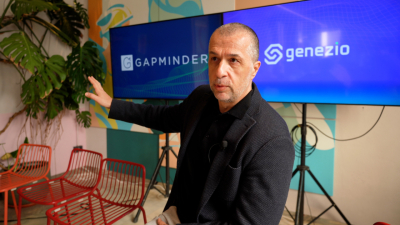In addition, 92 percent of respondents said their customers were attempting to stretch payment terms, while 87 percent were seeing suppliers demand earlier payment of invoices.
The KPMG survey of over 500 CFOs in the US, UK and Europe considers how CFOs can balance the short-term requirements of their need to raise cash with the long-term need to make the organizational changes necessary to sustain working capital performance.
The survey provides useful lessons for Romanian companies. As Serban Toader, Senior Partner at KPMG in Romania explains, “Romania’s economy has so far not been too badly affected by the world financial crisis. Nevertheless, problems have started to appear with the availability of credit, and banks have become more cautious about lending. It is consequently prudent for Romanian businesses to watch global developments carefully and to plan for a time when cash flow could be more difficult. The message of this survey is that companies need to look beyond quick fixes and start to think about the deeper structural changes they might need to make, so they are better placed to withstand a tougher economic environment.”
The survey found that only 14% of the respondents said their cash flow forecasts were on target during the past 12 months, while only 5 percent said they didn’t attempt any form of cash forecasting at all.
Less surprisingly, the survey also found that more than 40 percent of respondents said the credit crunch had an adverse or extremely adverse impact on their access to credit and on the cost of credit.
However, cash management remains the number one priority for just under a quarter of respondents (24 percent), while a further 61 percent describe it as one of the top five priorities for their business as a whole. Half of respondents acknowledged that there was a significant increase in stakeholder pressure to improve cash generation.
Other factors which affect management of working capital can include increased lead times, cited by a fifth of respondents, as a result of sourcing of goods and services in low-cost foreign markets.
As Mihaela Moise, Director Advisory, KPMG points out “Historically the majority of companies have been earnings driven with little focus on effective cash management. It takes just once for companies to run out of cash, so changing the corporate culture to respond to the economic downturn is a challenging task and requires companies to focus on cash management. One way to improve cash flow management is improved forecasting, and this requires a clear reporting framework so that key decision makers have the relevant numbers at their disposal.”
Wilson Balachandra (photo), Partner in KPMG’s Financial Advisory Services Department adds; “In the countries which have so far been affected by the global financial crisis, many companies are seeking stopgap solutions to raise cash quickly. But if everybody tries to do the same, the winners will be those on the top of the supply chain. Instead, companies need to develop a long term cash flow management strategy, so they receive accurate and timely information from customers and pass some of this on to suppliers.”
The best performing businesses tend to be those which link working capital performance to managerial incentives, and the survey found that almost a quarter of respondents hadn’t established a relationship between working capital and pay. Companies that provided incentives fared better over the last three years and expect to suffer less over the next three years, with more than 70 percent saying that they were slightly or very important to the success of a capital improvement initiative.
Citeste si:
Calculator Salariu: Află câți bani primești în mână în funcție de salariul brut »
Te-ar putea interesa și:



















































































![HR [PLAY] Tech Workout - 11...](https://www.wall-street.ro/image_thumbs/thumbs/973/973fe0a3888d417feff63de42e814180-260x260-00-65.jpg?v=1713559119)









